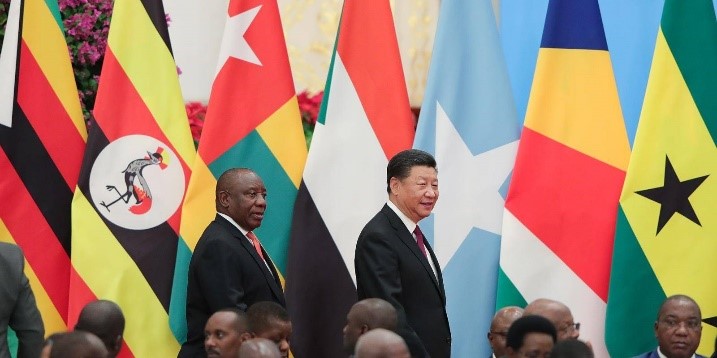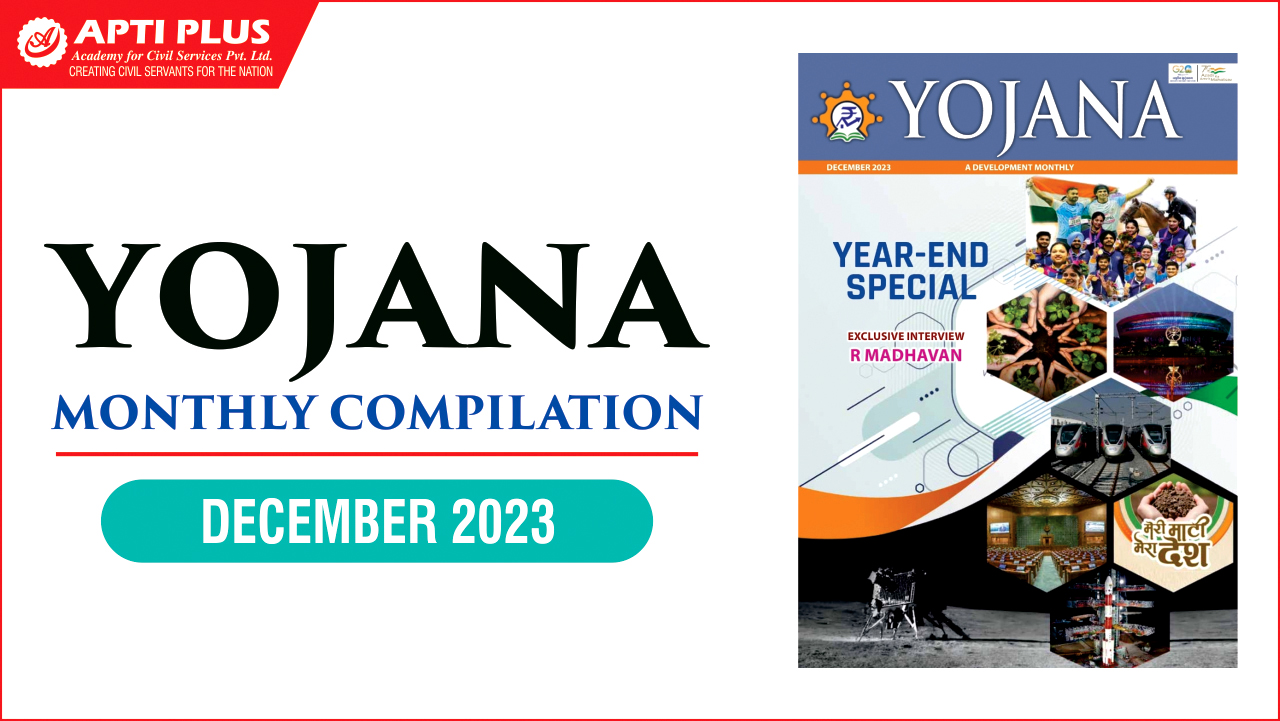
Disclaimer: Copyright infringement not intended.
Context
- From January 13-18, the Chinese Minister of Foreign Affairs, Wang Yi, visited four African countries, Egypt, Tunisia, Togo and the Ivory Coast
Chinese Foreign Minister's Extensive African Tour:
- Purpose: Strengthen economic and security cooperation, implement outcomes of China-Africa Leaders Dialogue.
Objectives:
Implementation of Initiatives:
- Focus on executing outcomes of China-Africa Leaders Dialogue held in August 2023.
- Three core initiatives: Support for Africa’s industrialization, agricultural modernization, and cooperation on talent development.
FOCAC 2024 Precedent:
- Set the stage for the ninth Forum on China-Africa Cooperation (FOCAC).
Mediating Peace in Gaza:
- In Egypt, conveyed China's intent to be a global mediator for peace in Gaza.
- Urged leaders in Egypt, Tunisia, and the League of Arab States for an "immediate and comprehensive ceasefire" in Gaza.
Why Africa was China’s First Stop for 34 Years:
Historical Context:
- China-Africa relations date back to the 1950s, rooted in support for African liberation movements.
- In the 70s, African support was instrumental in China securing a seat in the UN Security Council.
Evolution of Relationship:
- Ideological support transformed in 1999 with China encouraging investments in Africa (the "Go Out Policy").
- 2000 saw the establishment of the Forum on China-Africa Cooperation (FOCAC), marking a shift towards diplomacy, investment, and trade.
- China's Belt and Road Initiative (BRI) in 2013 deepened economic and strategic ties.
Current Status:
- China is Africa's largest trading partner and a significant source of foreign direct investment.
- Presence evolved from investor to a strategic actor, with a naval base in Djibouti.
China’s Objectives in Africa:
Resource Access:
- Secure access to vital resources such as cobalt, platinum, and coltan, essential for China's emerging tech industry.
Geopolitical Alliances:
- Leverage Africa's influence in the UN General Assembly, strengthening geopolitical ties.
- African support on international issues, including backing China's "One China" policy for Taiwan and Hong Kong.
Currency Strength:
- Encourage African countries to trade in Chinese currency (RMB).
- RMB-based financial instruments and debt restructuring in RMB to strengthen the currency.
Commercial Opportunities:
- Establish Africa as a significant export market for finished goods.
- Benefit from Africa's young population and cost-effective labor force.
Impact on Africa:
Economic Cooperation:
- China's investment, trade, and development aid contribute to Africa's economic growth.
- Significant source of Foreign Direct Investment.
Infrastructure and Employment:
- Chinese-built infrastructure and industrial parks create employment opportunities.
- Realization of the "Made in Africa" concept.
Agricultural Advancements:
- Chinese support in advancing hybrid crops contributes to advancements in Africa's agricultural sector.
China-Africa Partnership:
- Perceived as a 'win-win partnership' with high mutual trust.
- Non-interventionist approach gains momentum across the continent.

Challenges:
- Concerns regarding predatory investments and debt traps associated with Chinese engagements.
- Some instances of poorly managed debts raise questions about the sustainability of Chinese influence.
- Non-interference stance may inadvertently support authoritarian regimes.
Impact on India:
Economic Competition:
- China's economic influence in Africa poses competition for Indian businesses.
- Access to resources and markets in Africa is a shared interest, leading to economic rivalry.
Strategic Implications:
- China's growing strategic presence in Djibouti and naval base raises concerns for India's maritime security in the Indian Ocean region.
Diplomatic Influence:
- China's sway over African nations in international forums may impact India's diplomatic initiatives.
Infrastructure and Investment Gap:
- China's massive infrastructure projects in Africa may pose challenges for Indian businesses to compete in terms of scale.
Debt Trap Concerns:
- India needs to address concerns about debt traps associated with Chinese investments, presenting an alternative model for development aid.
Navigating the Way Ahead: India's Strategy in Response to China's Ties with Africa
Strategic Economic Engagement:
Diversification of Trade:
- Expand and diversify economic ties with African nations, offering competitive alternatives to Chinese investments.
- Focus on sectors where India holds strengths, such as information technology, pharmaceuticals, and renewable energy.
Developmental Aid:
- Implement sustainable development projects to address infrastructure gaps, showcasing a model distinct from China's large-scale investments.
Security and Defense Collaboration:
Maritime Security Cooperation:
- Strengthen maritime security collaborations with African nations to counterbalance China's naval presence in the Indian Ocean.
Counterterrorism Cooperation:
- Enhance counterterrorism efforts through intelligence-sharing and joint operations to address common security threats.
Diplomatic Outreach:
Bilateral Diplomacy:
- Strengthen bilateral ties with African nations through high-level diplomatic engagements and regular dialogues.
- Promote people-to-people interactions, cultural exchanges, and educational partnerships.
International Forums:
- Actively engage in international forums to garner support and present a united front on global issues, countering China's influence in international institutions.
Soft Power and Cultural Exchange:
Promotion of Soft Power:
- Leverage India's soft power by promoting cultural exchanges, showcasing Bollywood, and fostering academic partnerships.
Educational Initiatives:
- Encourage educational initiatives, scholarships, and research collaborations to build long-term relationships with African nations.
Technology Collaboration:
Digital Partnership:
- Collaborate with African nations in the digital space, offering technological solutions and expertise.
- Facilitate technology transfer and knowledge sharing in areas like digital infrastructure and e-governance.
Humanitarian and Development Assistance:
Healthcare and Education:
- Strengthen healthcare collaborations, particularly in the wake of global health crises.
- Expand educational assistance programs to build capacities and skills in African nations.
Global Alliances:
Strategic Partnerships:
- Forge strategic partnerships with like-minded nations to collectively address challenges posed by China's influence in Africa.
United Front:
- Collaborate with global allies to present a united front on issues like environmental sustainability, climate change, and human rights.
Adapting to Changing Dynamics:
Flexibility and Innovation:
- Remain flexible in adapting strategies to evolving geopolitical and economic dynamics.
- Innovate in approach, responding dynamically to emerging challenges and opportunities.

Conclusion
- In navigating the way ahead, India's proactive and multi-dimensional approach is essential.
- By focusing on economic diversification, security collaborations, diplomatic initiatives, and soft power projection, India can effectively position itself in Africa amid the changing dynamics influenced by China's growing ties with the continent.
|
PRACTICE QUESTION
Q. Evaluate the implications of China's deepening engagement with Africa on India's economic, strategic, and diplomatic interests. Analyze the challenges and opportunities arising from China's influence in the region and propose strategic measures for India to effectively address and leverage these dynamics.
|

















